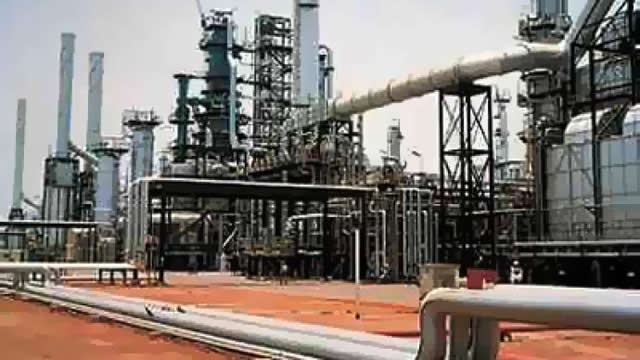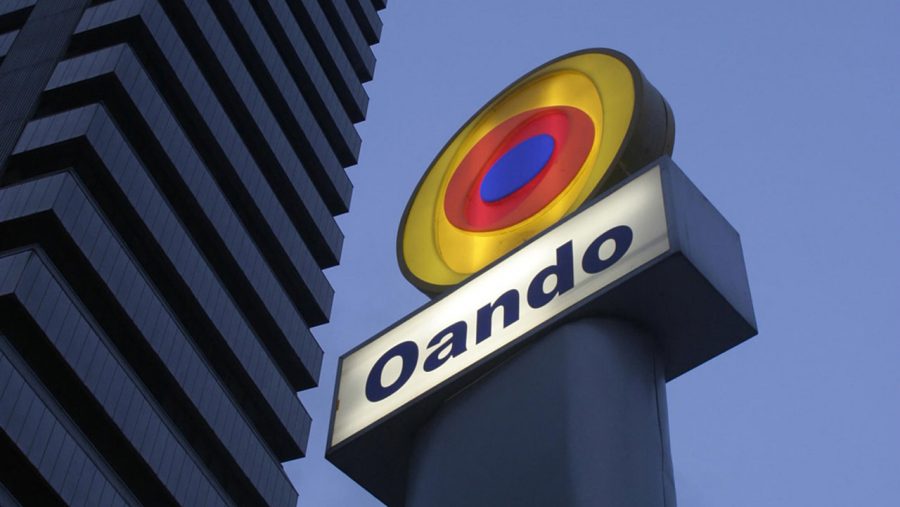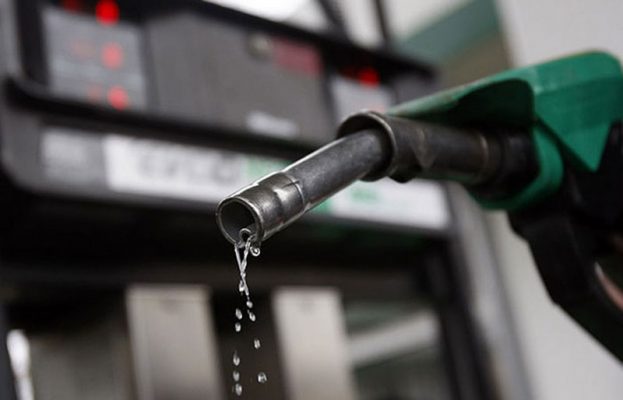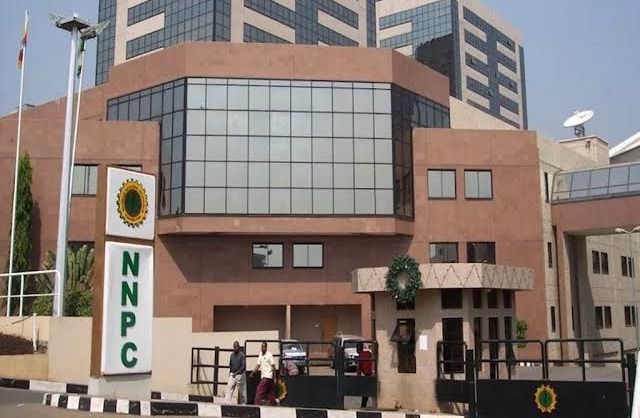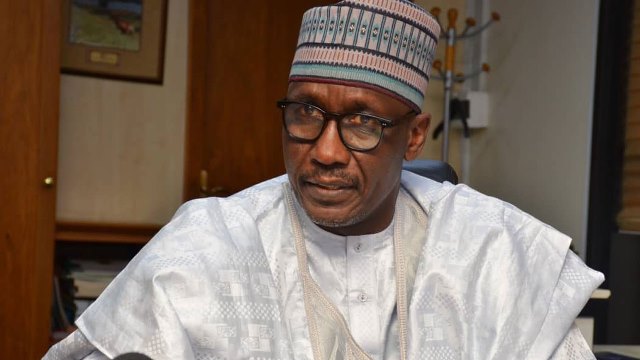The Nigeria National Petroleum Company (NNPC) Limited had a busy week following the award of honourary doctorate degree on its Group Managing Director (GMD) and Chief Executive Officer (CEO), Malam Mele Kyari.
The award was bestowed on the awardee by Federal University of Technology (FUT), Minna.
Other prominent Nigerians who received the award with Kyari for their selfless service and contributions to national development include Gen. Abdulsalami Abubakar, a former head of state, Prof. Akinwumi Adesina, President of the Africa Development Bank (AfDB) and former Minister of Agriculture, Abdul Samad Rabiu, President of Bua Group was also honoured.
The awards were the climax of the University’s 38th founder’s Day and 30th convocation ceremonies which took place at the university’s main campus, Minna, Niger.
The Vice Chancellor of the University, Prof. Abdullahi Bala said that the awardees deserved the awards.
In his acceptance speech, Kyari pledged to continue to be an advocate and ambassador of the University in every ramification possible while calling on youths and graduands to embrace technology.
The NNPC GMD who was accompanied to the event by some members of the company’s top management team also took time out to commission the Twin Lecture Theatre of the School of Physical Sciences of the institution.
The occasion was graced by some top dignitaries including Niger Governor, Alhaji Abubakar Sani Bello, the Sultan of Sokoto, His Eminence, Sa’ad Abubakar III, the Etspu Nupe and Chairman of Niger State Council of Traditional Rulers, HRH Yahaya Abubakar, and the Emir of Minna, HRH (Dr) Farouq Bahago.
Also in attendance were the Chancellor of the institution, His Imperial Majesty, Oba Aladetoyinbo Ogunlade Aladelusi-Odundun II, Deji and Paramount Ruler of Akure Kingdom and the Pro-Chancellor and Chairman of Council of the institution, Prof. Olu Obafemi among others.
Meanwhile, the NNPC Limited has positioned itself to lead Africa in energy transition following the increasing conversation around the transformation of global energy sector from fossil-based to zero-carbon by the second half of this century.
Explaining the Company’s strategy for a smooth and realistic energy transition, NNPC CEO, Kyari said the NNPC had set the necessary machineries in motion to lead Africa in transition to low-carbon energy and renewables.
Kyari spoke at the 30th Convocation Lecture of FUT, Minna, while delivering a lecture titled “Energy Transition & Energy Accessibility – The New Paradigm”.
He noted that as transition to cheaper energy gains momentum, especially across the developed countries, oil companies must continuously improve operational efficiency and reduce their costs to remain on the playground.
This, he said would guarantee affordable and reliable energy for rapid industrialisation and improve the economic well-being of the people.
He also said that the NNPC Ltd. had started deepening natural gas utilisation under the National Gas Expansion Programme (NGEP) and was currently extending natural gas infrastructure backbone from Ajaolkuta in Kogi to Kano through Abuja and Kaduna, under the AKK Gas Pipeline Project.
The mega AKK pipeline would be fed by both Escravos-Lagos Pipeline System (ELPS) and Obiafu-Obrikom-Oben (OB3) gas pipelines through Oben node in Edo and deliver 2bscf of natural gas to power plants and industrial off-takers along Abuja, Kaduna and Kano.
“As a National Oil Company and a global player, NNPC Ltd is ready to shift to renewable energy; efforts are ongoing to take a firm position in this transition process by institutionalising the necessary enablers for desired success.
“It is against this background that the company advised against putting Africa in the same energy transition speed as the industrialised nations.
“Any attempt to do this, can result in unanticipated collateral damage that can spark energy crisis and deny developing countries access to available and cheaper energy for growth,” Kyari said.
Kyari further explained that in furtherance of its efforts at taking the lead in Africa’s energy transition, the NNPC Ltd had established a Renewable Energy Division and had completely transformed its erstwhile Research &Development (R&D) Division to NNPC Research, Technology and Innovation Division.
“The company is also currently transiting into Energy Company of Global Excellence and therefore welcomes beneficial relationship with the academia and industry experts who demonstrate capacity for productive research and innovation in the energy sector.
“Considering the financial stretch required to transit at the same pace with the rest of the world, what Africa needs is energy transition that addresses energy poverty across the continent and supports the use of comparative and cheaper available energy resources in Africa.
“Attaining this vision will however, require substantial finance which may have to come from diverse sources globally
“Africa is especially endowed with abundant sunshine that can support massive development of renewable energy enough to put the continent on the map of energy sufficient regions of the world,” he added.
In the meantime, the NNPC Ltd. commenced the process of selecting competent Operations and Maintenance (O & M) firms to manage the Port-Harcourt, Warri and Kaduna Refineries upon completion of the ongoing rehabilitation work.
This became realistic with the public opening of bids from the five firms that applied for the contract.
Mustapha Yakubu, Group Executive Director (GED), Refineries and Petrochemicals, NNPC, said at the virtual bid opening that the exercise was part of ongoing efforts by the NNPC Limited to achieve the objective of boosting in-country refining capacity to guarantee energy sufficiency for the country.
Yakubu who was represented by the Managing Director, Warri Refining and Petrochemicals Company (WRPC), Babatunde Bakare, expressed confidence that the ongoing investments in the refineries would benefit all Nigerians.
Also at the event, the Group Executive Director, Corporate Services, Mrs Aisha Katagum, urged the bidding firms to have faith in the foolproof evaluation process, stressing that all stages of the selection would be carried out transparently.
The Group General Manager, Supply Management, Mrs Sohpia Mbakwe, said the tenders were “double envelop submission” that contained both technical and commercial bids from the participating companies.
She emphasised that each firm’s entry would be evaluated based on the strength of its ability to address the technical and commercial peculiarities of the preferred refinery.
It would be recalled that upon the public advertisement of the exercise on Oct. 8, 2021, a total of 52 companies sent in entries out of which, eight were prequalified and five firms successfully submitted according to specifications.
The five firms that bidded for the O &m service contract are Dovewell/Aramis, Daewoo, Petrofac, Technimont, and Pivot/EPROM.
